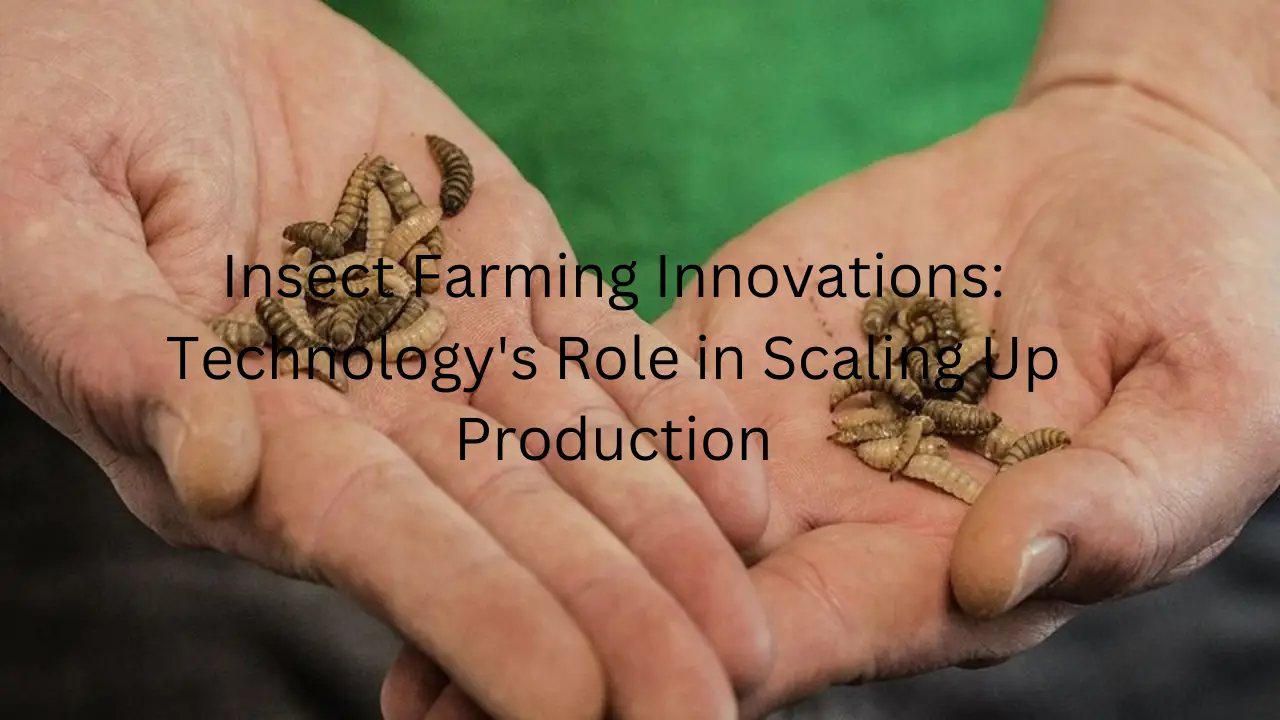
Crock-Pot 7 Quart Oval Manual Slow Cooker, Stainless Steel (SCV700-S-BR), Versatile Cookware for Large Families or Entertaining
30% OffInsect Farming Innovations: Technology’s Role in Scaling Up Production
In recent years, the world has seen a remarkable shift in agriculture with the rise of insect farming. This revolutionary practice has gained significant attention due to its potential to address food security, sustainability, and nutrition challenges. In this article, we will explore how technology plays a pivotal role in scaling up insect farming production.
The Rise of Insect Farming
Insect farming, also known as entomophagy, involves breeding and raising insects for various purposes, primarily as a source of protein. Insects like crickets, mealworms, and black soldier flies have become popular choices for farming due to their high protein content and lower environmental footprint compared to traditional livestock.
Benefits of Insect Farming
Nutritional Value
Insects are a rich source of protein, vitamins, and minerals. Incorporating them into our diet can help combat malnutrition globally.
Environmental Sustainability
Insect farming requires significantly less water, land, and feed compared to traditional livestock, making it a more sustainable option for protein production.
Reduced Greenhouse Gas Emissions
The methane emissions associated with cattle farming are a major contributor to climate change. Insect farming produces far fewer greenhouse gas emissions.
The Technological Revolution
Smart Sensors for Farming
Modern insect farms utilize smart sensors to monitor and optimize environmental conditions. These sensors collect data on temperature, humidity, and air quality, ensuring the ideal conditions for insect growth.
Automated Feeding Systems
Automation has streamlined the feeding process. Automated feeders dispense the exact amount of food required, reducing waste and labor costs.
Climate Control Solutions
Maintaining a consistent climate is crucial for insect farming. Technology-driven climate control systems adjust temperature and humidity levels automatically, providing a stable environment for insects.
Precision Farming Techniques
Precision farming techniques, such as vertical farming, allow for efficient use of space and resources. This approach maximizes insect production in limited areas.
Challenges and Solutions
Pests and Diseases
Insect farms face challenges related to pests and diseases. Advanced monitoring systems and early intervention techniques help mitigate these risks.
Regulatory Hurdles
Navigating regulations surrounding insect farming can be complex. Advocacy and collaboration within the industry are essential for overcoming regulatory barriers.
Consumer Acceptance
While insects are a nutritious and sustainable protein source, consumer acceptance remains a challenge. Education and innovative marketing strategies are key to changing perceptions.
Sustainability and Efficiency
The combination of technology and insect farming offers a promising path to a more sustainable and efficient food system. With fewer resource requirements and reduced environmental impact, this industry has the potential to revolutionize food production.
The Future of Insect Farming
As technology continues to advance, we can expect even more innovative solutions in insect farming. From genetic improvements in insects to further automation, the future holds exciting possibilities for this industry.
Conclusion
Insect farming, driven by technological innovations, stands at the forefront of sustainable and nutritious food production. With benefits ranging from reduced environmental impact to improved food security, this industry is set to play a significant role in shaping the future of agriculture.
FAQs
1. Are all insects suitable for farming?
Not all insects are suitable for farming, as some may pose health risks or have limited nutritional value. Insect farms typically focus on species like crickets, mealworms, and black soldier flies that are safe and nutritious.
2. Are insect-based products already available in the market?
Yes, you can find a variety of insect-based products, such as protein bars, snacks, and even insect-based flours, in the market. These products are gaining popularity among health-conscious consumers.
3. How can I start my own insect farm at home?
Starting a small-scale insect farm at home is feasible with the right guidance and equipment. You can find numerous online resources and starter kits to help you get started.
4. Is insect farming more sustainable than traditional livestock farming?
Yes, insect farming is generally considered more sustainable than traditional livestock farming due to its lower resource requirements and reduced greenhouse gas emissions.
5. Will insect farming become a mainstream source of protein in the future?
While it’s difficult to predict the future with certainty, insect farming has the potential to become a mainstream source of protein as technology continues to improve efficiency and consumer acceptance grows.











